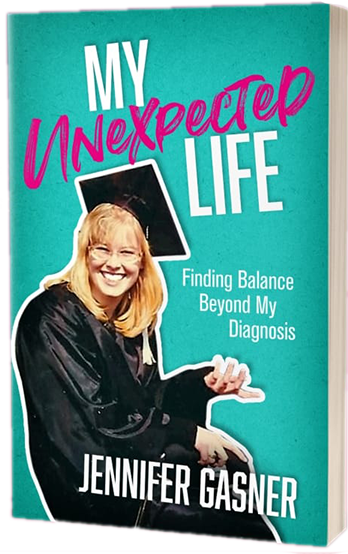Today is the anniversary of the signing of the Americans with disabilities act (ADA). It’s a monumental day for people with disabilities. My disability became official one month after the ADA passage. Naively, I thought the ADA would protect me from discrimination and prejudice. . .If only it were that simple. Don’t get me wrong; I have a deep appreciation for living with a disability with the law. It gave me access to services in college and grad school—something I know many students with disabilities prior to the ADA did not have. But more than providing me with tools to earn my education, the regulations about ramps, accessible restrooms, door openers, etc., have allowed me to participate in my community – allowing me the freedom to go to almost anywhere I like and participate in activities and events.
But I do experience discrimination, both blatant and subtle. I could write many pages about the difficulties I had finding a job. And when I did find one, I was often under-employed, meaning the job was not challenging and did not use any of my skills. The ability to grow or get promoted, and the poor pay, all seemed to come with each job.
I did consider suing one large employer, who interviewed me 40 times in 9 months with zero job offers. But no lawyer wanted to take the job because discrimination based on disability was going to be too difficult to prove. Really? To me, the prejudice was obvious. Plus, at the same time, I had one of my wheelchair-user friends go through the legal process regarding their discriminatory incidents only for it not to go their way.
Employment remains a difficult thing for many people with disabilities. Based on the latest Bureau of Labor statistics, only 22.5% of people with disabilities are employed.
Despite the law, attitudes about disability remain inherently wrong. We are seen as tortured souls unable to participate in life. Drowning in the sorrow of our body’s noncompliance with “normal.” I get that – because that’s how I used to think. But I want to change that narrative–show that being able to walk does not impact my ability to be happy or fulfilled in my life. I hope to convey that depending on others or asking for help is not a sign of weakness.
I started by writing my book, My Unexpected Life: Finding Balance Beyond My Diagnosis, but now I want to do more. Any ideas? I’d love some feedback.
I also wanted to highlight this podcast I did with Diversability about disability pride and this article on the Diversability blog.
Happy Disability Pride Month!
Until the next. . .


Recent Comments